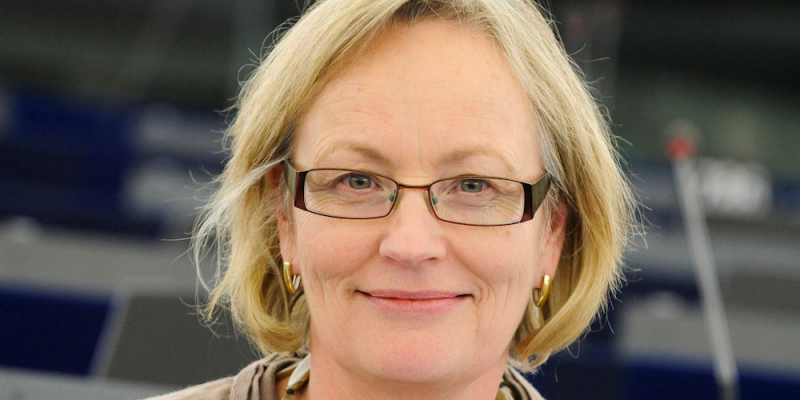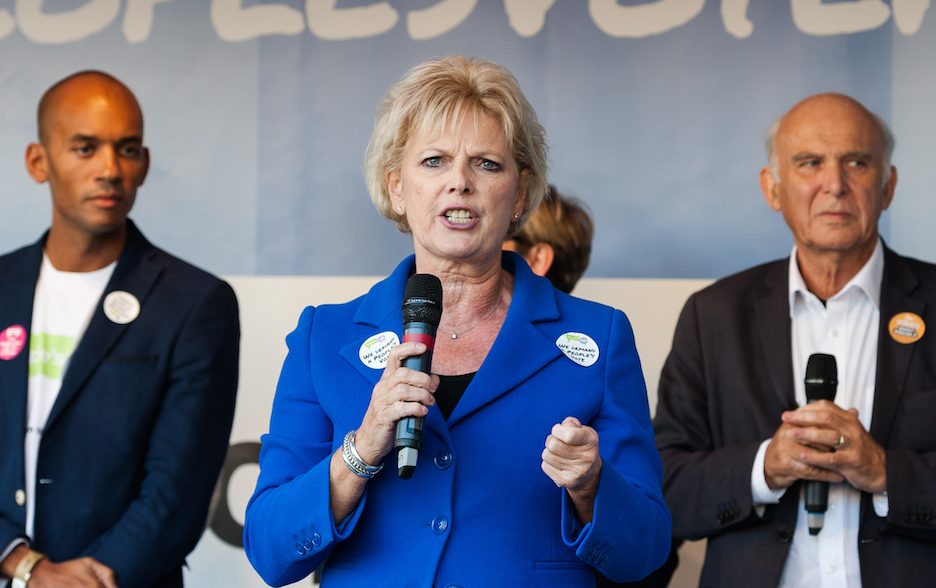- The United Kingdom’s pro-EU parties are bickering and divided.
- The Liberal Democrats, Greens and Change UK fell out this week over plans to field a joint candidate in an upcoming by-election.
- The row is one of many recent spats between the parties, which have failed to effectively join forces to maximise the campaign for stopping Brexit.
- Nigel Farage’s Brexit Party is reaping the benefit as the UK heads towards the European elections.
- Visit Business Insider’s home page for more stories.
LONDON – With the Brexit process deadlocked and polls showing majority support for remaining in the European Union, hopes have grown among Remain-supporters that Britain’s exit from the European Union can be stopped.
However, while the prospects for remaining in the EU appear on the surface to be better than ever before, bickering between the country’s anti-Brexit parties now risks throwing that advantage away.
The poor state of relations between the UK’s Remain parties came sharply into focus this week, when talks over fielding a joint candidate in the upcoming Peterborough by-election broke down, leaving the Liberal Democrats and Greens standing their own candidates, and the newly-formed Change UK failing to stand any candidate at all.
In a curious statement, Change UK – formed in February by eleven former Conservative and Labour MPs – blamed Labour Party figures who it said were planning to “strenuously disrupt” the cross-party campaign in Peterborough.
Why the Labour Party wouldn't want to disrupt a rival candidate wasn't explained.
Presented with the chance to assemble a strong, united campaign for stopping Brexit altogether, the pro-Remain parties are instead splintering, and jostling for a largely ineffectual position.
This could have serious consequences for the movement at the upcoming European elections, which are widely being portrayed in the press as a proxy referendum for remaining in the EU.
Recent European election polls suggest that a strategy of anti-Brexit parties forming an "alliance" and sharing one slate of candidates could have won up to 30% of the vote. As things stand, the Remain vote is set to split across Change UK, the Lib Dems, and the Greens, with all the parties winning a minority of seats as a result.
When Change UK first launched there were calls for the party to form an alliance with existing pro-EU parties.
However, Change UK instead decided to go its own way, writing off the Lib Dems as spent force and calling on its members to quit and jump ship to Change UK, with the mission of quickly becoming the premier anti-Brexit party.
But Change UK has struggled, bungling its launch, attracting ridicule through repeatedly changing its name, and failing to agree a logo in time for the European elections.
"I think people will write essays in a few years on how they [Change UK] fucked it all up," one senior figure in the anti-Brexit movement told Business Insider this week.
"They got media when they defected but then you need a different skill set to try and thrive in the soup of minor parties. I'm not sure they have it at the moment."
Identity crisis

The bickering between the pro-Remain parties continued on Friday afternoon following the release of what was seemingly a pretty minor press notice from the Liberal Democrats.
The Liberal Democrats announced that Julie Girling, a "Change UK Member of European Parliament," was urging pro-Remain Brits to vote for Lib Dem candidates in the upcoming European Parliament elections.
On first read, it looked like quite the coup for Sir Vince Cable's party.
Girling, a former Conservative MEP, had effectively endorsed the Lib Dems as the country's leading anti-Brexit party, having previously publicly declared her support for Change UK in February.
Within minutes of the Lib Dems announcing the news, Change UK figures were accusing them of dishonesty.
Change UK sources were unhappy with the Lib Dems for describing Girling as a "Change UK MEP."
They pointed out that she had never represented them in political office, or held any formal party role whatsoever.
"It's very naughty," a Change UK figure told Business Insider, while another accused Girling of "stirring" and added: "She's not one of our MEPs nor has she ever been. She was an independent, thrown out by the Tories."
Girling herself confirmed that she was not a Change UK MEP, telling Business Insider: "I was not and am not a Change UK MEP. I sit in the European Parliament as an independent."
However, she described Change UK's attempts to distance the party from her as "a bit disingenuous," given they had only recently been in talks with her about the possibility of her standing for the party.
Not wanting to miss out on the infighting, the Green Party also joined in on Thursday starting a Twitter spat with the Lib Dems by claiming that it was their MP Caroline Lucas who first came up with the term "People's Vote." Lib Dem Tim Farron said the claim was "silly," "pointless" and "wrong."
These episodes are confusing and in the grand schemes of things, trivial. But they are just the latest example of the growing infighting and chaos that have come to define Britain's Remain movement in recent months.
Nigel Farage reaps the benefit of Remain disarray

As Britain's Remain parties tear into each other, Nigel Farage's Brexit Party is in a strong position to win the European elections, with opinion polls putting his party at over 20% of the vote.
The prospect of Farage topping a national poll in what will be painted as a proxy referendum on whether the UK should leave the European Union, doesn't yet seem to have prompted the Remain parties to get it together.
It didn't have to be this way. With Brexit delayed and no exit deal in site, Members of Parliament on both side of the Brexit divide believe there is now a real chance of it not happening at all.
But with the Remain movement's major players instead turning their firing power on each other, Britain's pro-Europeans are increasingly at risk of throwing away the one advantage that has been handed to them.
